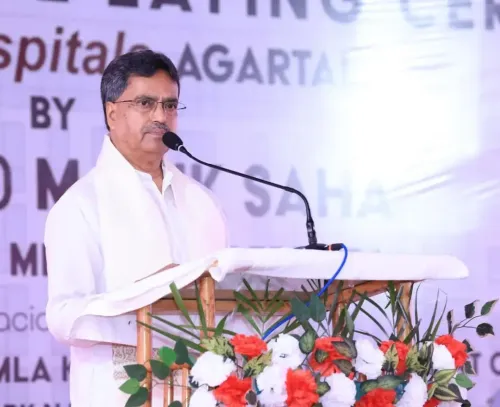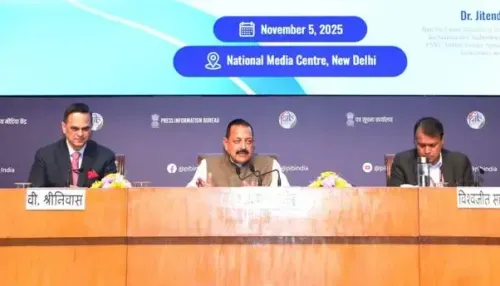Is Feeding Pigeons on Delhi's Footpaths Harmful?

Synopsis
Key Takeaways
- The NGT is scrutinizing pigeon feeding practices in Delhi.
- Pigeon droppings pose health risks, including respiratory diseases.
- Authorities have been notified to respond to the tribunal.
- The issue highlights the need for balanced urban wildlife management.
- Public health and safety are paramount in environmental discussions.
New Delhi, June 3 (NationPress) The act of feeding pigeons on footpaths, pavements, and traffic islands in Delhi is now under scrutiny by the National Green Tribunal (NGT).
The environmental tribunal has sent notices to the Delhi government, its Public Works Division (PWD), the Municipal Corporation of Delhi (MCD), and the New Delhi Municipal Council (NDMC) after a petition was submitted to the NGT highlighting the negative impacts of dried pigeon droppings combined with dust.
The petitioner, law student Armaan Palliwal, argued that these droppings can lead to severe respiratory illnesses, including hypersensitivity pneumonitis, which results in lung scarring and breathing difficulties.
The petition indicated that the feeding and increased presence of pigeons results in droppings accumulating on the footpaths, pavements, and traffic islands. When these areas are cleaned, the toxic particles of dried droppings mix with the dust, polluting the environment and posing health risks.
In an order issued on May 29, a bench led by Chairperson Justice Prakash Shrivastava and expert member Dr. A. Senthil Vel stated that the petition raised a “significant issue” concerning compliance with environmental regulations.
“Issue notice to the respondents (authorities) to submit their responses via affidavit to the Tribunal at least one week prior to the next hearing date through e-filing,” the NGT directed, scheduling the matter for a hearing on August 8.
It further specified that if any respondent directly submits a reply without going through their advocate, that authority must be present to assist the tribunal. The petitioner is instructed to notify the other respondents and file an affidavit of service at least one week before the next hearing date.
According to the National Green Tribunal Act, 2010, this tribunal is tasked with addressing cases related to environmental conservation and the safeguarding of natural resources.









